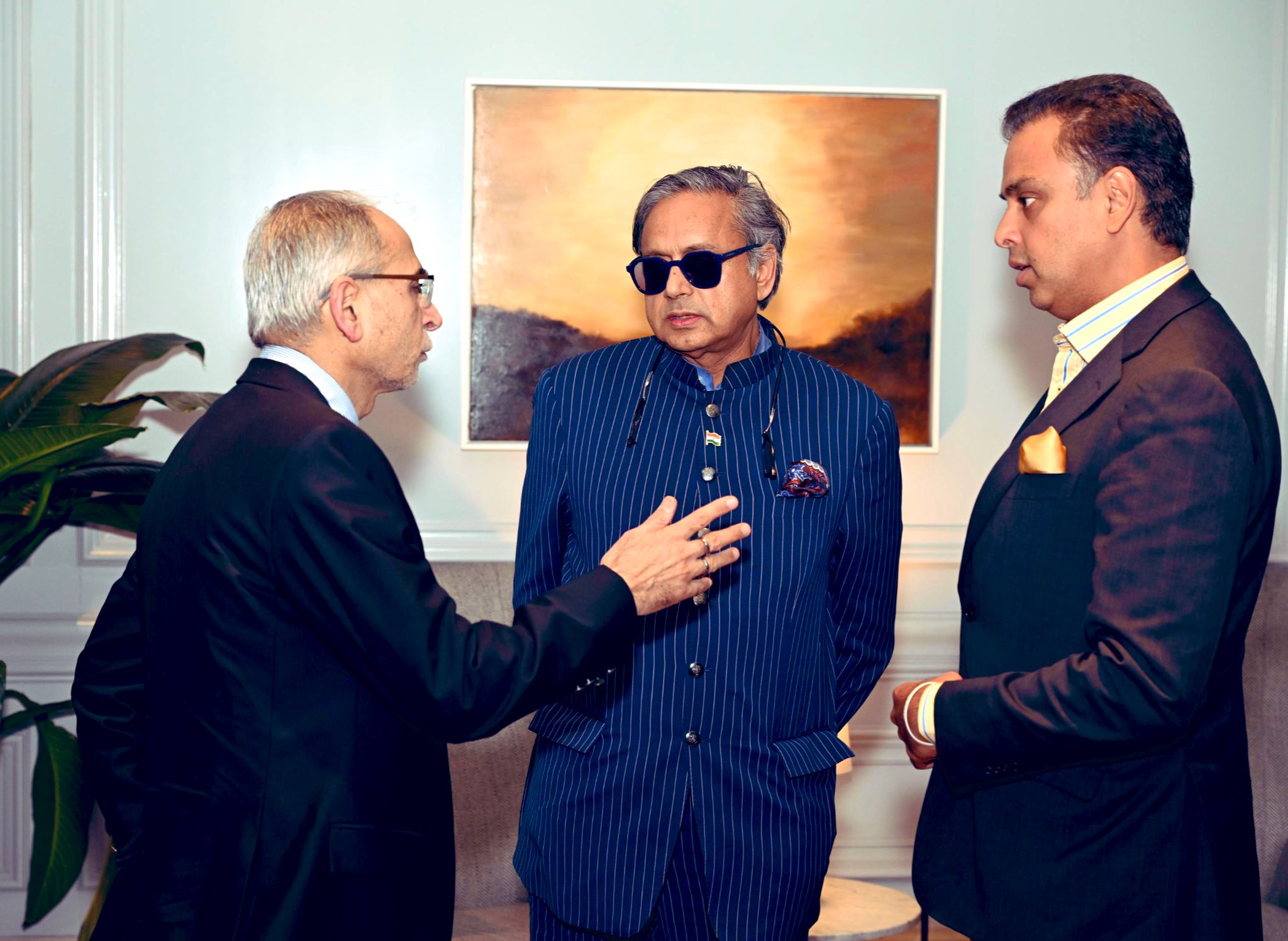Shashi Tharoor Leads Final Leg of India’s Global Anti-Terror Offensive in U.S
In the final and most strategically significant leg of India’s global diplomatic outreach following the April 22 Pahalgam terror attack, a high-level, all-party parliamentary delegation led by Member of Parliament Dr. Shashi Tharoor is in the United States from June 3–5 to engage with U.S. lawmakers, think tanks, and the media.
 |
| Image Source: Dr Tharoor on X |
The visit is aimed at showing India's bipartisan resolve to build global consensus around counter-terrorism, showcase Operation Sindoor as a legitimate act of self-defence, and reinforce strategic narratives about regional security.
The delegation includes senior lawmakers and experienced public figures across party lines—including Bhubaneswar Kalita, Milind Deora, Sarfraz Ahmad, Tejasvi Surya, Shashank Mani Tripathi, Ganti Harish Madhur, and former Ambassador Taranjit Singh Sandhu—presenting a united front before key American stakeholders. The agenda includes closed-door briefings with U.S. Congressional members, expert dialogues at leading think tanks, and engagements with prominent media professionals.
India’s final diplomatic stop follows similar high-level engagements in Europe, Latin America, Africa, and multilateral forums, forming part of a calculated, facts-based campaign launched after 26 civilians were killed in Pahalgam in what India has termed its worst terror attack since 2008.
India has since carried out targeted counter-terror operations—under “Operation Sindoor”—against terrorist infrastructure across the Line of Control, followed by sustained public diplomacy to contextualize its actions as proportional, responsible, and within international norms.
While in transit through New York on May 24, the delegation visited the National September 11 Memorial & Museum to pay tribute to victims of terrorism globally, symbolically linking India’s experience with that of the international community.
Shashi Tharoor at the Forefront
In a defining moment of the campaign, Dr. Shashi Tharoor emerged as a key voice articulating India's position with moral clarity and political coherence. In Colombia, he publicly criticized Bogotá’s initial response to India’s counter-terror action, arguing, “There can be no equivalence between those who dispatch terrorists and those who defend themselves.” Following the delegation’s outreach, Colombia withdrew its earlier statement of sympathy for casualties in Pakistan and acknowledged India’s evidence and justification.
Pakistan’s Parallel Diplomatic Push
While India’s outreach focuses on legitimacy, evidence, and global counter-terror partnerships, Pakistan has pursued a parallel track at the United Nations. Bilawal Bhutto Zardari, leading a parliamentary delegation, met UN Secretary-General António Guterres and UNGA President Philemon Yang to push Pakistan’s version of events. Bhutto urged the UN to restore the Indus Waters Treaty and facilitate dialogue on Kashmir, accusing India of “unprovoked aggression” and human rights violations.
In contrast to India’s multi-pronged bilateral and multilateral engagements, Pakistan’s diplomacy has leaned heavily on UN platforms and narratives around humanitarian impact and international law. While Guterres reiterated the UN’s support for peace and dialogue, no specific multilateral action followed the meetings.
Global Reception
India’s approach has visibly gained ground in capitals across continents. Countries like Australia, Colombia, Spain, Ethiopia, and the United States have responded with statements of support or acknowledgement of India’s right to self-defence. Defence agreements, bilateral statements, and multilateral dialogues have been reinforced during this diplomatic cycle.
Meanwhile, Pakistan has received diplomatic courtesies but limited endorsements. Its focus on internationalising the Kashmir issue and contesting the Indus Waters Treaty’s suspension has drawn symbolic sympathy but little policy traction.
